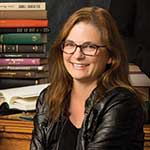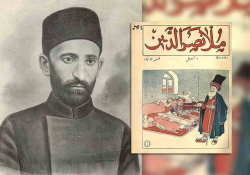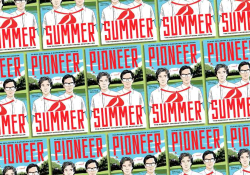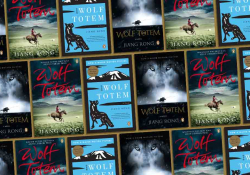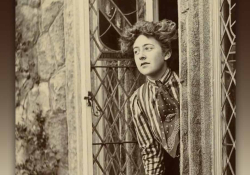Translating a “Certain Zarhin-ness,” a Conversation with Yardenne Greenspan
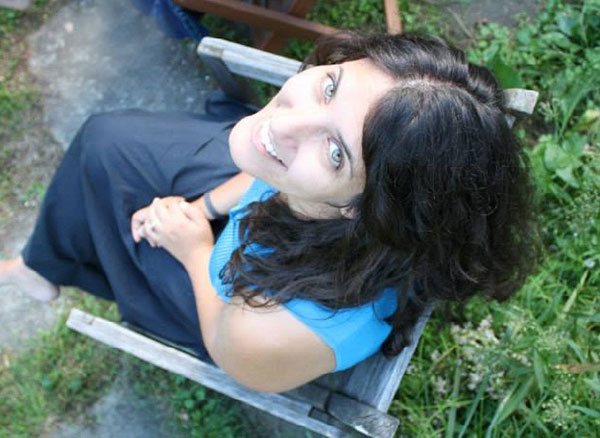
Today is the release date for Some Day, the English translation of Israeli filmmaker Shemi Zarhin’s first novel. Zarhin’s many award-winning films include Bonjour Monsieur Shlomi (2003), Aviva My Love (2006), and The World Is Funny (2012), which was nominated for fifteen Israel Film Academy awards. The novel is set along the shores of the Sea of Galilee in Tiberias, where Zarhin was born in 1961.
Some Day is an intimate, three-decade examination of a family–not a portrait, not a snapshot, but a full plunge into their loving, eating, befriending, coping, betraying, and forgiving. In this interview, translator Yardenne Greenspan talks about translating this novel as well as several broader issues of translation.
Michelle Johnson: This being Zarhin’s first novel, you didn’t have any earlier translations of his work to either look to or consciously avoid. To whom did you look for inspiration while translating this book?
Yardenne Greenspan: Zarhin’s films were my greatest source of inspiration. His use of images translates from the screen to the page, and there is a certain Zarhin-ness, a mood, both pensive and desperately funny, that characterizes his work in both mediums. The many poems either referenced or quoted in the book were another source of inspiration. The characters are exposed to Hebrew poetry and learn to see the world through the prism of its image. These gave me a feeling of how they should speak. Besides these, I really can’t help but get inspired by anything I read, hear, or watch as I’m working. My grandfather always stopped reading books in periods when he wrote his own because he didn’t want to become influenced by other people’s words. I’m a big believer in influence. The trick is I have to make a point of always reading great stuff.
MJ: Were you in communication with Zarhin while translating the novel?
YG: Zarhin and I were in constant communication throughout the process of translation. I sent him my draft, he gave me notes, and then we had some back-and-forth discussions about different challenges the translation posed. We discussed small adjustments to the original, or appropriate terms for the translation. Sometimes I had questions about his intentions for a certain section. It became quite philosophical at times. We had some debates about specific terms that were meant to sound a bit foreign, even in Hebrew, but which we didn’t want to sound unbearably strange. That’s one of the special aspects of translating into English—most people in Israel know at least some English, and so it’s a much more dialectic process than if I were to translate into, say, Chinese or Romanian. It leads to some disagreements and some compromise, but it also allows me to get a lot more information about the author’s preferences and intentions. We also have coffee whenever I’m in Israel, which is fun.
MJ: Who are some Hebrew-to-English translators you admire, and do you have a favorite translation?
YG: There are some great translators out there, such as Jessica Cohen, Evan Fallenberg, and Becka Mara McKay, to name a few. I’m inspired not only by their linguistic abilities but by their career paths and their readiness to get in touch and support emerging translators. This has also been the case for translators of other languages who were my teachers—Idra Novey, Susan Bernofsky, and Jeffrey Yang. They were, and are, always ready to give advice or push me in the right direction. I am incredibly grateful for that.
Most of the time, I read Israeli literature in the original Hebrew. However, once in a while I get to read a Hebrew-into-English translation, and it’s one of the best things I can do for my brain. I’m not sure about a favorite translation, but recently I read Mitch Ginsburg’s translation of Second Person Singular by Sayed Kashua, and was extremely impressed, both by the fluidity of the language and the simplicity of the rendition. I was struggling with the idea of footnotes in Zarhin’s novel—how many to include, how informative do they need to be. I’m not a big fan of footnotes, but there were so many details I wanted American readers to have, and it was tempting to pile them on. Then I read Ginsburg’s translation, and what do you know: not one footnote. And this in a novel that deals with the relationships among Jewish-Israelis, Arab-Israelis, and Palestinians, that references historical events and uses Arabic and Hebrew slang. He had full faith in his readers to make it on their own, which they absolutely can. I needed to be reminded of that.
MJ: Ah, yes. I read Mitch Ginsburg’s English translation of Second Person Singular and included it on a list of “Outstanding Works of Law and Literature You Won’t Find on Every Other List” in our November 2012 issue. Did you consider pulling all the footnotes after reading this novel, or did you reduce the footnotes? As a lawyer, I’m fascinated by the choices writers make concerning footnotes—that tension between our desire to speak parenthetically and the need to keep the reader immersed in the text.
YG: I had a love-hate relationship with footnotes in this book. When I read Ginsburg’s translation, I was already finishing up a draft of Some Day to send to my editors at New Vessel Press, Ross Ufberg and Michael Wise. Initially, I was going to use very few footnotes—I think they’re mostly distracting. But as Zarhin and I discussed the draft I was working on, we wanted to explain more and more things. It’s akin to making a new friend and wanting to tell them everything about yourself. We wanted every little tidbit of Israeli culture and history to be understood and acknowledged. This is of course preposterous. No single reader can notice and understand every little detail of a book, even if he or she has a perfect understanding of its cultural and historical setting.
I tried to limit the number of footnotes and their length, and I tried to make them as informative and interesting as possible. But I put in way too many. There was one instance in which a kibbutz member, the son of immigrants, berates Ruchama, whose family has been in Tiberias for generations, willing to acknowledge her as a “true Israeli” only after her family had been struck by tragedy. Ruchama thanks him bitterly before beginning to shake with rage. I sent this paragraph, with very little background, to a few American friends and asked them what they thought was going on. I specifically chose ones who didn’t know much about Israeli society. Some of them got right away that Ruchama was being sarcastic, because the idea of the kibbutz member “accepting” her into “his” country was offensive and ridiculous. But others thought she was sincerely thanking him. Stuff like that concerned me.
Ultimately Ross and Michael wanted most of the footnotes removed, and rightfully so. They assured me that most of the references in the book can be easily figured out or guessed, and reminded me that most readers, especially those using electronic reading devices, had Google literally at their fingertips. They both speak some Hebrew and know a lot about Israel, and in that way they served as a perfect link between Zarhin and me on the one hand, and the average American reader on the other hand. When they understood references right away, I was appeased. If there was something they misinterpreted, I knew we absolutely had to have a footnote there. I think we ended up with around ten footnotes, which is pretty good for such a long book.
MJ: The story of this family unfolds against the backdrop of Israeli politics and highlights tensions among Jewish Israelis. Can you tell us about the novel’s reception in Israel?
YG: Some Day was hugely popular in Israel. Speaking with Israelis who’ve read it and reading newspaper reviews and online comments, there seem to be two categories of what readers took away from it. For many, it was a nostalgic trip, shooting them back to their own provincial childhoods in a younger and more naïve Israel. They identified with the small-town experience of smelling your neighbors’ cooking and indulged in the many references to the music and poetry of the period.
For others, it was a wrenching critique of how stuck we are in our own minds, both in terms of politics and social issues and in terms of our personal growth and ability to comfort and support our children through theirs.
The book offers all of this, and there is no need to separate these aspects of the story. It’s both a love song to Tiberias of the 1960s, ’70s, and ’80s and a lamentation of how painfully fallible it was, and is. Amazingly enough, I think political and social tensions serve both these readings, providing a bittersweet trip down memory lane.
MJ: David Bellos has said that a novel translated from French to English should give the English reader “the vague impression of having read a novel in French”? Is it part of the translator’s duty to preserve some element of the original language, and did you purposefully do so in Some Day?
YG: I don’t know that it’s a translator’s duty, but I think it’s a good thing to do. There are so many interesting theories on translation, and many of them focus on the question of foreign-ness versus seamlessness; how natural do you want the translation to sound in English versus how much of an “exotic” feel do you want to preserve. I think a good balance is necessary. You don’t want readers to have to pause and scratch their heads at weird sentence structures or grammatical awkwardness, but on the other hand, you want to give them that little something, that curiosity that comes with reading something set in a new place, where people speak differently and joke differently and love differently. So if, in Some Day, Ruchama has some quirky sayings that sound a bit more natural in Hebrew but are still unique to her, I’ll try and implement that into the translation. Once in a while I’ll keep a slang word, such as yalla (which means “go on, go already, get out of here” in Arabic). I could have easily translated it, but the surprising and unusual taste of that foreign word enhances the flavor of the story and pulls readers deeper into the little Israel they’re constructing in their minds.
I try never to really “Americanize” things. It creates a fabrication really, if you change too many names or products or sayings to make it easier on readers. I assume people who are uncomfortable with a little diversity won’t choose to read translated literature anyway, so what’s the point?
MJ: Writing for Words Without Borders, Georgia de Chamberet said that “humor, slang, and puns can cause a translator an attack of linguistic hiccups.” Can you recall a particularly difficult expression and how you resolved its translation?
YG: Oh, there were plenty of those in Some Day. So much of the story is founded in language and in lingual obstacles.
I have to say, those are my absolute favorite moments on the job. I usually come up with an initial placeholder and then I let the pun or the joke bounce around in my mind for a while, fermenting while I brainstorm. I ask my friends about it, and those are some of the few moments when I get to really share my work with them in a way that’s fun for both of us. They usually ask for more.
Hilik, the younger brother in Some Day, is in love with books. He claims not to be able to understand the plots, but he understands the words and he collects them in his notebook. He teaches his older brother, Shlomi, how to read. He takes words apart and interprets them using his own off-color way of thinking, as only a child can. I needed to follow suit in a way that made sense in English but didn’t veer too far off from the Hebrew.
One example of this happens when Hilik tastes mayonnaise for the first time. Horrified by the texture and taste, he declares that the word “mayonnaise” (pronounced “mayonez” in Hebrew) is made up of the words “mayim” (Hebrew for “water”) and “nazelet” (Hebrew for “snot”). I had some graphic discussions about the secretion of bodily fluids with Zarhin, my husband, some friends, and mainly with myself. This is the final result:“Hilik barely swallowed it, twisted his face and said, ‘I think the word mayonnaise is made up of the words milk and nasal, milk comes out of your nose and you get mayonnaise, and that’s why it’s gross.’”
Yummy.
And then there are things that work in any language. At one point, Ruchama tearfully asks her obese neighbor and best friend, Vardina, what she would do if Vardina were to keel over and die while breathlessly climbing the stairs to her apartment. Ruchama asks this rhetorically, expressing her concerns, but Vardina answers plainly, “Call for a crane.” That line cracks me up whenever I read it.
MJ: I recently read on poet Lauren Camp’s blog that Yehuda Amichai’s “poems are accessible, but one of his translators, Robert Alter, has explained that there are nuances of Hebrew that don’t transfer to English. Alter stated that Amichai ‘uses his own language and literary tradition as a delicately tuned instrument that communicates to Hebrew readers certain tonalities that others will not hear.’” Did you confront nuances of Hebrew that didn’t translate to English? If so, how did you handle them?
YG: I like to think that I translated everything that could be translated, but I believe there are inevitably going to be things that can’t be conveyed to the fullest. Especially in a country as small and intimate as Israel, there are so many little nuances and mannerisms in the way people speak that only locals can totally “get.” Today, and much more so in the 1970s and ’80s, which is when most of the plot is set, most everybody listened to the same radio shows and watched the same stuff on TV. They didn’t need to explain jokes. I always get the sense that it’s much easier to be understood in Hebrew. It’s something I still deal with, living in the US.
Another issue is the political and social scene, which is a big part of the book. Small, seemingly minor moments that portray the difference, for instance, between Ashkenazi and Sephardic Jews, between Jews and Arabs, become huge when you have to find a way to convey their meaning and significance. In Hebrew it would just be obvious. Sometimes I had to add a word or two within the narrative in order to clarify these things without the use of a footnote.
MJ: In a recent article for Words Without Borders, Alison Anderson observed that “over the last two years, an average of 26 percent of the books of fiction or poetry [in translation] published in the United States were by women.” Why do you suppose this number is so low?
YG: I have to assume that this is part of the greater problem women in the literary world face. This is not new information: the Vida Count and other studies have already shown how dire things are. Books by women are published less, read less, reviewed less, and win fewer literary awards. And though plenty of women are still writing great books, I think there are quite a few who’ve been deterred by this and aren’t pushing as hard as they can. I’m not blaming them. It’s hard to let the creative juices flow when you have to fight all the time, but that’s what’s required of us right now. I try to tip the odds in our favor by making a point of buying and reading more books written by contemporary female writers. Ridiculously enough, female writers are thought to be able to only speak about a unique female experience, while male writers are perceived as describing an encompassing human experience. Even if that were true, which no thinking individual could truly believe, it raises the question of why people aren’t more interested in reading about the female experience.
I’ve translated pieces by men and women and don’t see any reason why one category would be more desirable than the other, other than the age-old reason: too many people view the world as being made up of two genders: “person” and “woman.”
MJ: What advice do you have for those hoping to become literary translators?
YG: The first thing I would say is “Don’t be shy.” That’s probably true for most professions. Some of the most interesting projects I’ve worked on were obtained through a gesture as simple as a Facebook message. If you read a book you love and feel connected to, just find a way to contact the writer or the publisher. Tell them how much you loved it. Make sure they know you’d treat it right. People who work with words often tend to feel more comfortable alone, hiding behind their laptops, than networking with a glass of champagne in hand. Find a way in which you can advance yourself and push forward; don’t wait for someone to email you.
In terms of improving your craft, I think listening carefully to the way people speak the language you’re translating into is invaluable. When you’re translating, use that knowledge, and don’t be afraid to veer slightly away from the original for the sake of natural and flowing language—otherwise you’re stuck with grammatically awkward phrasing. It’s helpful to look at your translation separately from the original, as its own text, and to read it out loud to make sure it sounds right. It’s a subtle game of shifting loyalties. Sometimes it’s critical to preserve the original sound and phrasing, and sometimes the message behind the words is what really counts. Ultimately, you’re serving everyone best by creating a good, strong piece that glides off the tongue. This takes incredible amounts of practice, which is why I think the most important advice I can give anybody is: REVISE.
Born into a bilingual family in Tel Aviv, Yardenne Greenspan is a fiction writer and translator. A recipient of the American Literary Translators Association Fellowship, her translation projects include works by Rana Werbin, Yaakov Shabtai, and Gon Ben Ari. She is currently writing a novel about fatherhood and translating the forthcoming short-story collection Tel Aviv Noir.
